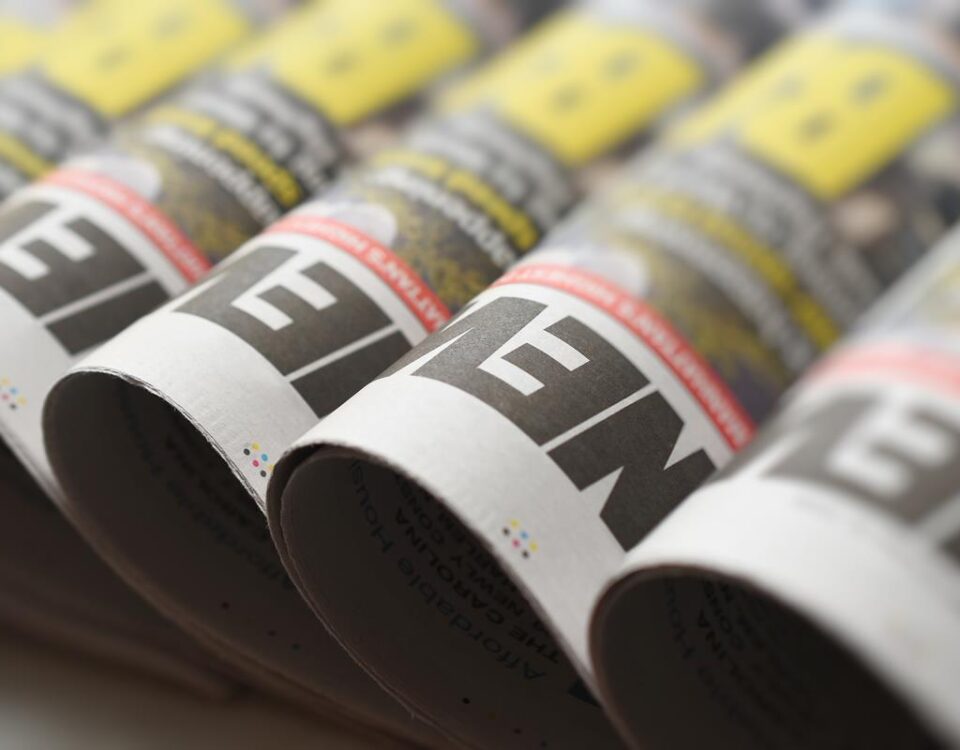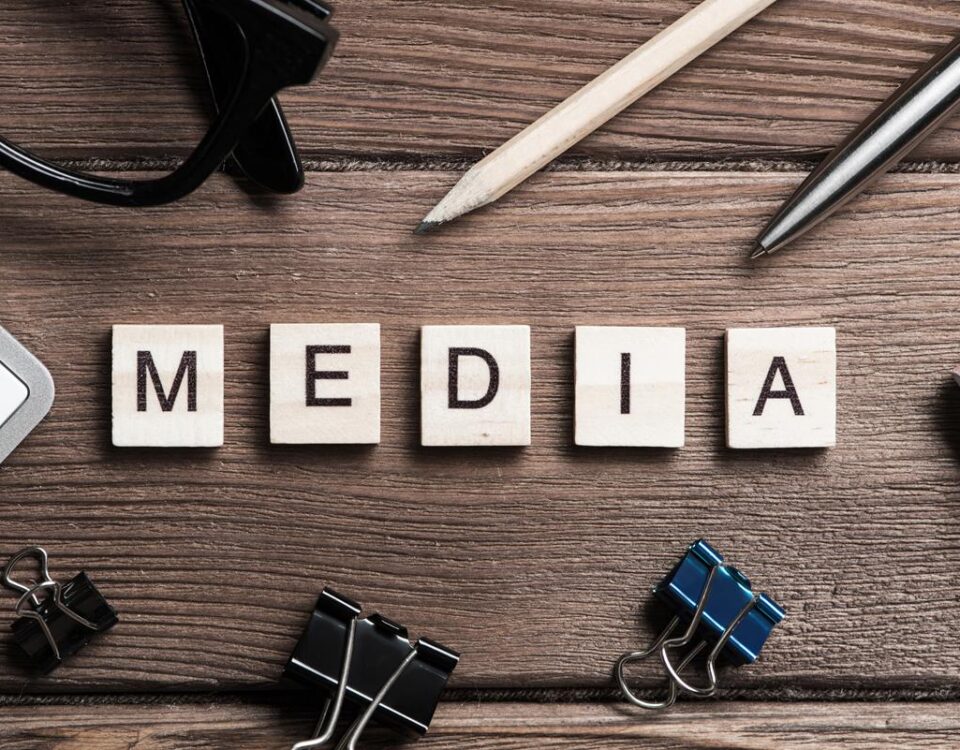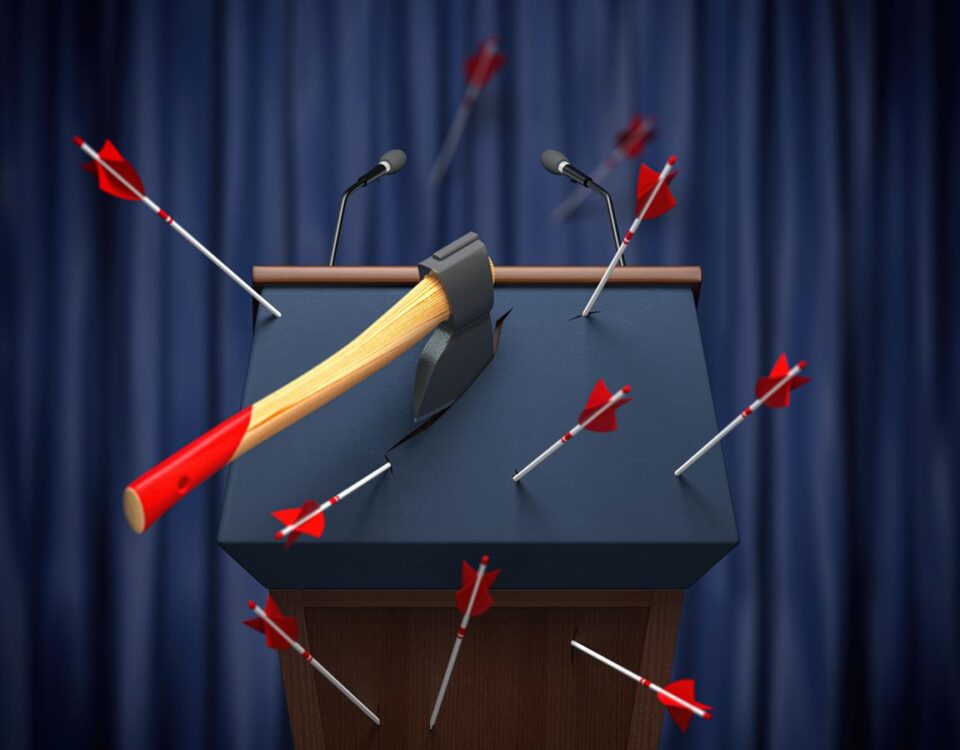
Unidentified Drones Swarm U.S. Bases: Security Fears Escalate
December 20, 2024
“President Musk” Democrat Talking Point Trick
December 20, 2024Media’s Orwellian Fact-Checkers
The growing distrust of fact-checkers can be attributed to several factors, ranging from perceived biases, inconsistent standards, politicization of information, and the rise of alternative media. Once seen as arbiters of truth, fact-checkers now face skepticism from many people who feel that their credibility has been compromised. One of the key reasons people no longer trust fact-checkers is the widespread belief that these organizations have become politically biased. Many major fact-checking organizations are viewed as leaning towards one side of the political spectrum.
As a result, people who align with the opposite viewpoint may feel that the fact-checkers are unfairly targeting their beliefs or political figures. For instance, during the Trump presidency, many on the right accused fact-checkers of disproportionately scrutinizing conservative claims while giving more leniency to left-wing figures. The perceived politicization of fact-checking erodes trust because it suggests that fact-checkers are not neutral or objective but rather advancing a particular agenda.
Fact-checking organizations often apply inconsistent standards when evaluating statements from different political figures or parties. What may be flagged as “misleading” or “false” for one political group might be labeled as “mostly true” or given a softer critique for another. This inconsistency has led many people to question whether fact-checkers are truly objective. A statement that is complex or nuanced may be judged differently depending on the outlet’s interpretation, which can further exacerbate the sense of bias.
For example, two fact-checking organizations might assess the same statement differently, with one calling it “half true” and the other deeming it “mostly false.” These inconsistencies, whether due to differing methodologies or underlying biases, lead to confusion and diminish the authority of fact-checkers in the public’s eyes. Many people are left feeling that fact-checkers selectively choose which “facts” to emphasize, depending on their own ideological leanings.
In today’s hyper-partisan environment, fact-checking has often been weaponized to discredit opposing views, leading to further distrust. Politicians and media outlets frequently invoke fact-checks to invalidate their opponents’ claims while ignoring their own misinformation. The result is that fact-checking is no longer seen as a neutral activity but as a tool used by one side to undermine the other. This selective application of fact-checking fosters the perception that it is less about truth and more about power.
The explosion of alternative media platforms has also contributed to the decline in trust in traditional fact-checkers. Many individuals have turned to social media influencers, independent journalists, or alternative news sources that present themselves as more authentic and less biased. These alternative voices often challenge the mainstream narratives and accuse traditional fact-checkers of being complicit in the spread of misinformation or of being gatekeepers for established powers. As people increasingly consume information from these alternative sources, they become more skeptical of the fact-checkers who are aligned with the legacy media institutions.
A general erosion of trust in mainstream media has further impacted how people view fact-checkers. Since many fact-checking organizations are affiliated with or supported by mainstream media outlets, they are often tarred with the same brush. When people distrust the media, they are more likely to view the fact-checkers associated with it as biased or unreliable. This distrust is further fueled by instances where fact-checkers have made mistakes, corrected themselves too late, or appeared to downplay certain inaccuracies that align with their worldview.
Finally, the psychological phenomenon of confirmation bias plays a significant role in why people no longer trust fact-checkers. Individuals are more likely to trust sources that confirm their pre-existing beliefs and to reject those that challenge them. When fact-checkers contradict someone’s deeply held views, they are often dismissed as biased or untrustworthy. The rise of echo chambers on social media only exacerbates this issue, as people increasingly surround themselves with information that reinforces their beliefs, making it harder for fact-checkers to break through. To restore trust, fact-checkers would need to demonstrate greater transparency, consistency, and neutrality in their work. Nobody in their right mind believes that will ever happen in the 21st Century Orwellian era. Fact-checkers will never be trusted again.
C. Rich
CRich@AmericaSpeaksInk.com

C. Rich is the voice behind America Speaks Ink, home to the America First Movement. As an author, poet, freelance ghostwriter, and blogger, C. Rich brings a “baked-in” perspective shaped by growing up on the streets and beaches of South Florida in the 1970s-1980s and brings a quintessential Generation-X point of view.
Rich’s writing journey began in 2008 with coverage of the Casey Anthony trial and has since evolved into a wide-ranging exploration of politics, culture, and the issues that define our times. Follow C. Rich’s writing odyssey here at America Speaks Ink and on Amazon with a multi-book series on Donald Trump called “Trump Era: The MAGA Files” and many other books and subjects C. Rich is known to cover.
“America Speaks Ink is a Google News approved source for Opinion”





